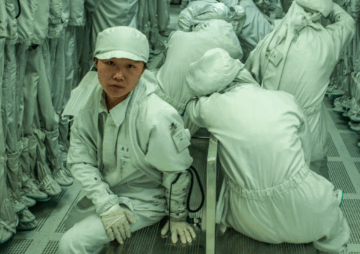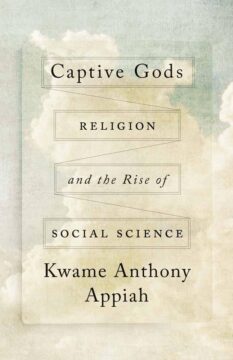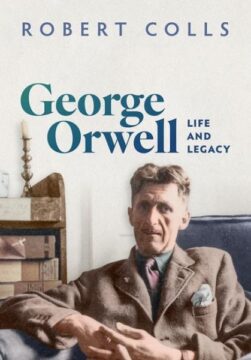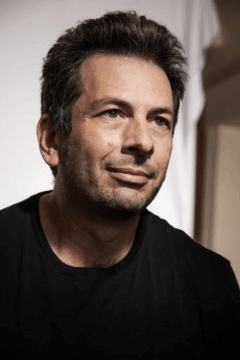Arthur Goldhammer in Eurozine:
Is Charlie Kirk’s assassination-turned-martyrdom unofficially disestablishing the US constitutional clause against the government forming a national religion? And how astute would it be for diverse American sects to align their religious beliefs with Trump’s call for retribution? Even Pope Leo XIV has condemned the administration’s ‘unchristian’ policies.
After the assassination of Charlie Kirk, the Bible-quoting, radical right-wing political organizer, on 10 September 2025, the US president and his top officials moved quickly. In conjunction with Kirk’s widow and Turning Point USA, the political recruiting and Christian proselytizing organization Kirk founded, they staged a memorial extravaganza that combined lachrymose emotional display with Christological imagery and bellicose political rhetoric.
The First Amendment to the US Constitution states: ‘Congress shall make no law respecting an establishment of religion, or prohibiting the free exercise thereof; or abridging the freedom of speech, or of the press; or the right of the people peaceably to assemble, and to petition the Government for a redress of grievances.’ Strictly speaking, the Trump administration had not violated the letter of the Constitution. Congress had made no law.
But in making a martyr of Kirk, MAGA leaders exhibited a shrewd appreciation of one of the most profound insights of Alexis de Tocqueville, the nineteenth-century French historian and political theorist, who was the first and greatest student of American democracy: namely, that when it comes to guiding the evolution of democratic society, ‘mores are more important than laws’, where by ‘mores’ he meant not only ‘habits of the heart but also … the whole range of ideas that shape habits of mind … the whole moral and intellectual state of a people.’
More here.
Enjoying the content on 3QD? Help keep us going by donating now.

 On 1 November 2025, the south-western Indian state of Kerala – home to 34 million people – was
On 1 November 2025, the south-western Indian state of Kerala – home to 34 million people – was  The way the fabled investor Bill Ackman sees it, he was born to move markets. It’s right there in the name: BILL-ionaire ACK-tivist MAN, as the 59-year-old always loves pointing out, whether in a
The way the fabled investor Bill Ackman sees it, he was born to move markets. It’s right there in the name: BILL-ionaire ACK-tivist MAN, as the 59-year-old always loves pointing out, whether in a  The emergence of agentic Artificial Intelligence (AI) is set to trigger a “Cambrian explosion” of new kinds of personhood. This paper proposes a pragmatic framework for navigating this diversification by treating personhood not as a metaphysical property to be discovered, but as a flexible bundle of obligations (rights and responsibilities) that societies confer upon entities for a variety of reasons, especially to solve concrete governance problems. We argue that this traditional bundle can be unbundled, creating bespoke solutions for different contexts. This will allow for the creation of practical tools—such as facilitating AI contracting by creating a target “individual” that can be sanctioned—without needing to resolve intractable debates about an AI’s consciousness or rationality. We explore how individuals fit in to social roles and discuss the use of decentralized digital identity technology, examining both ‘personhood as a problem’, where design choices can create “dark patterns” that exploit human social heuristics, and ‘personhood as a solution’, where conferring a bundle of obligations is necessary to ensure accountability or prevent conflict. By rejecting foundationalist quests for a single, essential definition of personhood, this paper offers a more pragmatic and flexible way to think about integrating AI agents into our society.
The emergence of agentic Artificial Intelligence (AI) is set to trigger a “Cambrian explosion” of new kinds of personhood. This paper proposes a pragmatic framework for navigating this diversification by treating personhood not as a metaphysical property to be discovered, but as a flexible bundle of obligations (rights and responsibilities) that societies confer upon entities for a variety of reasons, especially to solve concrete governance problems. We argue that this traditional bundle can be unbundled, creating bespoke solutions for different contexts. This will allow for the creation of practical tools—such as facilitating AI contracting by creating a target “individual” that can be sanctioned—without needing to resolve intractable debates about an AI’s consciousness or rationality. We explore how individuals fit in to social roles and discuss the use of decentralized digital identity technology, examining both ‘personhood as a problem’, where design choices can create “dark patterns” that exploit human social heuristics, and ‘personhood as a solution’, where conferring a bundle of obligations is necessary to ensure accountability or prevent conflict. By rejecting foundationalist quests for a single, essential definition of personhood, this paper offers a more pragmatic and flexible way to think about integrating AI agents into our society. For Susan Sawyer, a physician-researcher specializing in adolescent health at the Murdoch Children’s Research Institute in Melbourne, Australia, the start of the social-media ban this week meant entering the next phase of her research. Over the past two months, Sawyer and her colleagues interviewed 177 teenagers aged 13–16 about their social-media use, screen time and mental health before the ban came into effect. She and her colleagues plan to survey the teenagers again in six months, to see whether the ban has affected their use of the platforms or their mental health. The researchers will also survey the participants’ parents about problematic Internet and social-media use by their children.
For Susan Sawyer, a physician-researcher specializing in adolescent health at the Murdoch Children’s Research Institute in Melbourne, Australia, the start of the social-media ban this week meant entering the next phase of her research. Over the past two months, Sawyer and her colleagues interviewed 177 teenagers aged 13–16 about their social-media use, screen time and mental health before the ban came into effect. She and her colleagues plan to survey the teenagers again in six months, to see whether the ban has affected their use of the platforms or their mental health. The researchers will also survey the participants’ parents about problematic Internet and social-media use by their children. I first encountered Zheng Xiaoqiong’s writing in
I first encountered Zheng Xiaoqiong’s writing in  We tend to think of religion as an age-old feature of human existence. So it can be startling to learn that the very concept dates to the early modern era. Yes, you find gods, temples, sacrifices and rituals in the ancient Mediterranean, classical China, pre-Columbian Mesoamerica. What you don’t find is a term that quite maps onto ‘religion’.
We tend to think of religion as an age-old feature of human existence. So it can be startling to learn that the very concept dates to the early modern era. Yes, you find gods, temples, sacrifices and rituals in the ancient Mediterranean, classical China, pre-Columbian Mesoamerica. What you don’t find is a term that quite maps onto ‘religion’. Peck focuses on what Orwell got brilliantly right – about fascism, communism, imperialism, nationalism, the abuses of new technology and the lies people tell themselves without necessarily realising. But even when Orwell was proved wrong, which was often, he was wrong in a sincere and interesting way. To quote his disclaimer in Homage to Catalonia, ‘I warn everyone against my bias, and I warn everyone against my mistakes. Still, I have done my best to be honest.’
Peck focuses on what Orwell got brilliantly right – about fascism, communism, imperialism, nationalism, the abuses of new technology and the lies people tell themselves without necessarily realising. But even when Orwell was proved wrong, which was often, he was wrong in a sincere and interesting way. To quote his disclaimer in Homage to Catalonia, ‘I warn everyone against my bias, and I warn everyone against my mistakes. Still, I have done my best to be honest.’ After the long, torturous summers that bake northern India in 40-degree Celsius (104 degree Fahrenheit) heat, winter should be welcomed as a reprieve. Instead, it is our season of sadness. The annual pollution emergency faced by hundreds of millions of Indians is upon us — three months of physical and emotional suffocation. I live in Delhi, one of the
After the long, torturous summers that bake northern India in 40-degree Celsius (104 degree Fahrenheit) heat, winter should be welcomed as a reprieve. Instead, it is our season of sadness. The annual pollution emergency faced by hundreds of millions of Indians is upon us — three months of physical and emotional suffocation. I live in Delhi, one of the 
 I chose the green door ninety-three days ago. At the time, it seemed obviously correct. Not even a close call. The red door offered two billion dollars immediately—a sum so large it would solve every material problem I’d ever face, fund any project I could imagine, and still leave enough to give away amounts that would meaningfully change thousands of lives. But two billion is a number. It has a fixed relationship to the economy, to the things money can buy, to the world. The green door offered one dollar that doubles every day. I remember standing there, doing the mental math. Day 30: about a billion dollars. Day 40: over a trillion. Day 50: a quadrillion. The red door would be surpassed before the first month ended, and after that, the gap would grow incomprehensibly fast. Choosing the red door would be like choosing a ham sandwich over a genie’s lamp because you were hungry right now. So I walked through the green door. The first few weeks were unremarkable.
I chose the green door ninety-three days ago. At the time, it seemed obviously correct. Not even a close call. The red door offered two billion dollars immediately—a sum so large it would solve every material problem I’d ever face, fund any project I could imagine, and still leave enough to give away amounts that would meaningfully change thousands of lives. But two billion is a number. It has a fixed relationship to the economy, to the things money can buy, to the world. The green door offered one dollar that doubles every day. I remember standing there, doing the mental math. Day 30: about a billion dollars. Day 40: over a trillion. Day 50: a quadrillion. The red door would be surpassed before the first month ended, and after that, the gap would grow incomprehensibly fast. Choosing the red door would be like choosing a ham sandwich over a genie’s lamp because you were hungry right now. So I walked through the green door. The first few weeks were unremarkable.